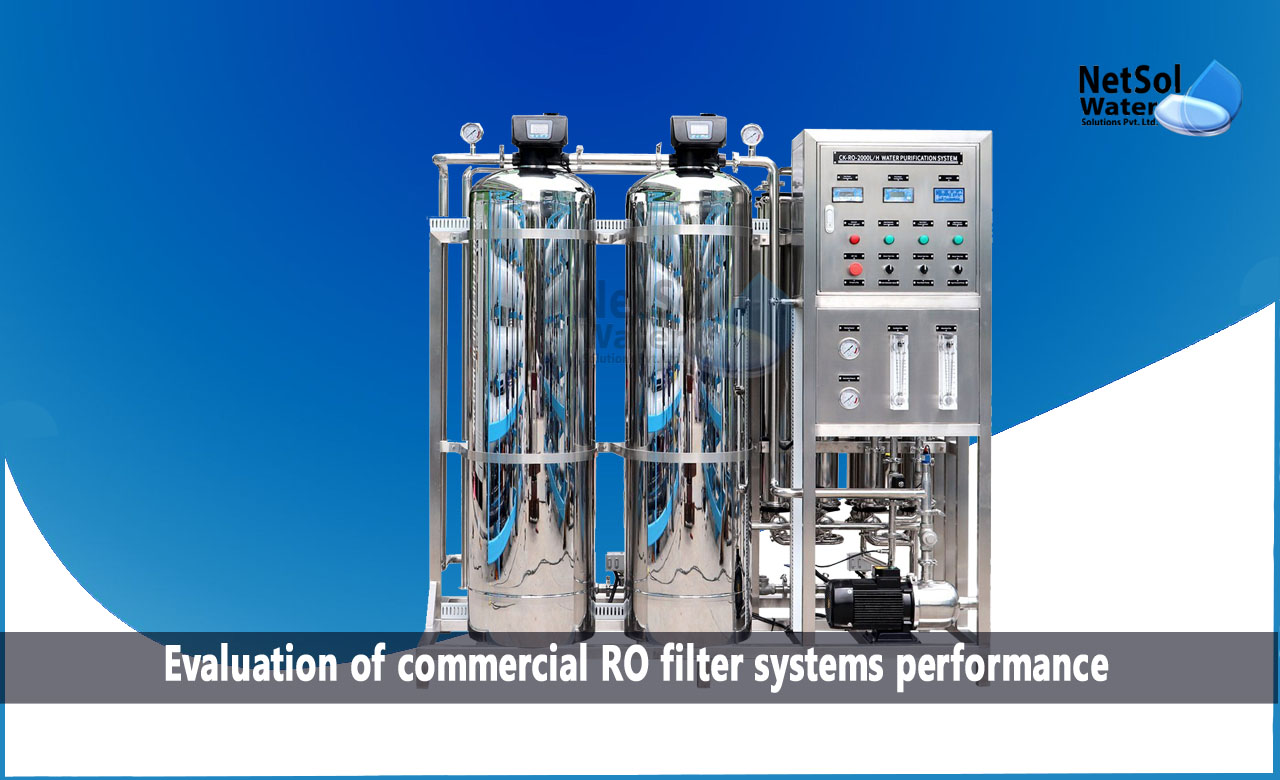The performance of commercial reverse osmosis (RO) filter systems refers to how effectively and efficiently the system is able to treat the feed water and produce high-quality treated water. In general, the performance of an RO system is evaluated based on several parameters, including the permeate flow rate, the recovery rate, the TDS rejection rate, and the quality of the treated water.
A well-performing commercial RO system should be able to consistently produce the desired quantity of treated water while efficiently removing impurities and contaminants from the feed water. A poorly performing system may have low permeate flow rates, high wastewater flow rates, low TDS rejection rates, and/or poor water quality. It may also be prone to fouling and require frequent maintenance and replacement of system components, which can increase operational costs and downtime. Therefore, it is essential to monitor and evaluate the performance of commercial RO systems regularly to ensure that they operate optimally and produce high-quality treated water.
Evaluation of commercial RO filter systems performance:
Evaluating the performance of commercial reverse osmosis (RO) filter systems is important to ensure that the system is operating efficiently and producing high-quality treated water. Here are some key performance indicators to consider when evaluating a commercial RO system:
1. Permeate flow rate: The permeate flow rate is the rate at which treated water is produced by the RO system. This should be measured regularly to ensure that the system is operating at the expected flow rate.
2. Feed water pressure: The feed water pressure is the pressure of the untreated water that is being fed into the RO system. This should be measured regularly to ensure that it is within the recommended range for the system.
3. Temperature: The operating temperature has a significant impact on the flow of RO permeate. The permeate flow increases with increasing water temperature. This happens as a result of water having less viscosity and a higher diffusion rate at higher temperatures, which makes it simpler for the water to pass through the RO membrane. Temperature affects not just how much water is created but also how much salt can travel through the membrane. The RO membrane becomes hotter due to the warmer feedwater, which speeds up the process of salt dilution.
4. Recovery rate: The recovery rate is the percentage of feed water that is converted into treated water. A higher recovery rate can reduce the amount of wastewater produced by the system, but should be balanced against the risk of fouling and damage to the system components.
5. TDS rejection rate: The total dissolved solids (TDS) rejection rate is the percentage of TDS that is removed by the RO system. This should be measured regularly to ensure that the system is removing the expected amount of TDS from the feed water.
6. Salt Concentration: The salt concentration gradient, which is the difference between the TDS on the feed side of the membrane and the permeate side of the membrane, controls the rate of salt passage over a membrane. Pressure has no impact on the pace of salt flow. The permeate salt concentration does, however, decrease as the feed pressure rises because more permeate water is generated. This happens because more permeate water dissolves the same quantity of salt that diffuses across the membrane.
7. Pressure drop across the system: The pressure drop across the RO system is the difference in pressure between the feed water and the treated water. This should be measured regularly to ensure that it is within the recommended range for the system.
8. Wastewater flow rate: The wastewater flow rate is the rate at which rejected water is discharged from the system. This should be measured regularly to ensure that the system is producing the expected amount of wastewater.
9. Water quality: The quality of the treated water produced by the system should be regularly tested to ensure that it meets the desired standards for purity and quality.
Do you need an advice or assistance on selecting the best water and waste water treatment unit? We have solutions for all your problems!
Let us now your problem, our experts will make sure that it goes away.
For an assistance or related query,
Call on +91-965-060-8473
Or write us at enquiry@netsolwater.com



